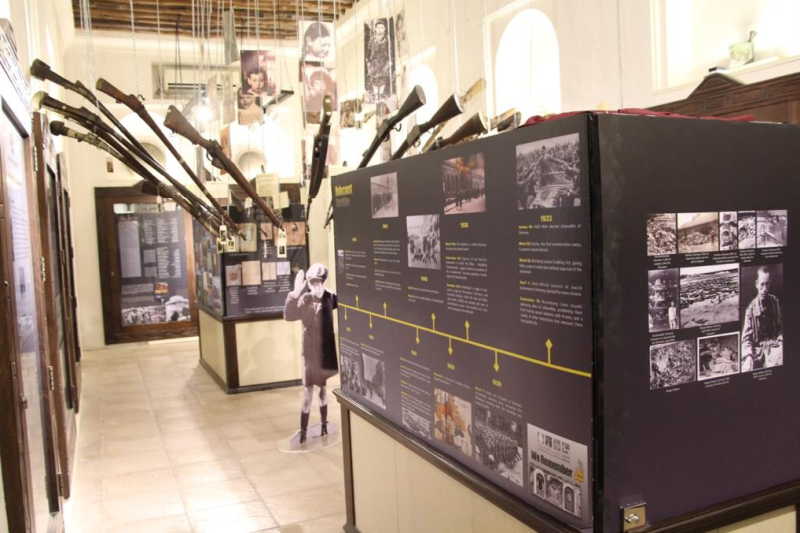
The Holocaust exhibit in the Crossroads Of Civilizations Museum (CCM). Photo credit: Ofir Winter of the Kantor Center.
The Kantor Center at Tel Aviv University presents for the 1st time
Annual Review – Positive Trends in Fighting Antisemitism and Radicalization around the World
International Holocaust Remembrance Day 2022
The Report was presented to Israel’s President Isaac Herzog on International Holocaust Remembrance Day
Legal precedents in the battle against antisemitism l Enhanced resources to protect Jewish communities l Expanded restoration of Jewish cemeteries l Top sports teams join the battle against antisemitism l The Arab World’s first Holocaust memorial exhibition |
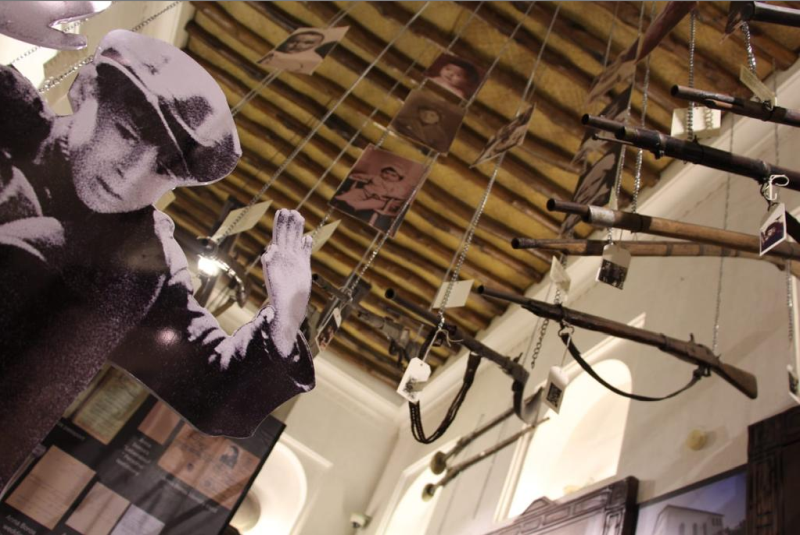
The Holocaust exhibit in the Crossroads Of Civilizations Museum (CCM). Photo credit: Ofir Winter of the Kantor Center.
Highlights from the Report include:
- The legal arena: A series of encouraging precedents in fighting antisemitism were set during 2021, restraining the so far almost unrestricted dissemination of hate propaganda. One important example was the ruling of the European Court of Human Rights against a Bulgarian MP who had disseminated antisemitic tropes in his books.
- The political and legislative arena: Governments around the world increased the resources allocated to protecting Jewish communities, appointed special envoys for fighting antisemitism, and adopted the Working Definition of Antisemitism of the International Holocaust Remembrance Alliance (IHRA).
- The cultural arena: A rising trend of restoring Jewish cemeteries was observed in Eastern Europe, while in Western Europe and North America leading sports associations and teams raised the banner of the fight against antisemitism.
- The Middle Eastern arena: The Holocaust was meaningfully addressed for the first time by a public museum in an Arab country (the UAE). Other encouraging steps were also introduced by the governments of the UAE and Bahrain.
The Kantor Center for the Study of Contemporary European Jewry at Tel Aviv University presented its inaugural report on Positive Trends in Fighting Antisemitism and Radicalization around the World, including recommendations for policies and activities that can enhance these trends. The Report was presented today, Thursday, to President of Israel Isaac Herzog at a special ceremony held at the President’s official residence in Jerusalem. The ceremony was held in commemoration of International Holocaust Remembrance Day, January 27 – the day on which the Auschwitz death camp was liberated in 1945.
Israeli President Isaac Herzog: “The global antisemitism crisis is escalating, but the international fight against it is also intensifying. We are witnessing many initiatives for combating antisemitism around the world, and we must encourage and foster these positive trends. Strengthening the light is just as important as fighting darkness. I thank the Kantor Center for its dedicated research and faithful work in monitoring antisemitism worldwide.”
Prof. Uriya Shavit, Head of the Kantor Center, Entin Faculty of Humanities at TAU: “Discourse on antisemitism and radicalization usually focuses on troubling negative trends. We decided that a positive report, describing encouraging developments and activities, should also be published – for three reasons: expressing appreciation for those already active; impelling more governments and organizations worldwide to initiate similar activities; and promoting a discussion on concrete proposals for improving existing programs.”
The Positive Trends Report was authored by a team of seven leading TAU experts from various fields, with policy recommendations formulated in a series of brainstorming sessions. Participants include: Dr. Inna Shtasker (restoration of Jewish cemeteries in Eastern Europe); Dr. Ofir Winter and Dr. Giovanni Quer (encouraging developments in the Gulf); Prof. Dina Porat (political and legislative developments); Dr. Tomer Fadlon (sports); advocate Talia Naamat (legal developments).
Every chapter in the report ends with a series of recommendations for organizations and governments aiming to enhance their fight against antisemitism. Recommendations include: establishing a website that provides comprehensive information and guidance on restoration of Jewish cemeteries in Europe; promoting the teaching of the Holocaust in the Arab world, (dissociated from the context of current events); establishing mechanisms for monitoring governments’ implementation of their pledges to fight antisemitism; and encouraging sports clubs in Eastern Europe to join programs that combat religious intolerance.
Positive trends and events presented in the report
The legal arena
- In February 2021, the European Court of Human Rights ruled against Bulgarian MP Volen Siderov, founder of the far-right political party ATAKA, who had expressed antisemitic views in his books, published about 20 years ago.
- Several national courts across Europe also ruled in similar contexts that some forms of hate speech are so virulent that they violate the rights of all persons belonging to the maligned group.
- The European Commission expanded the ‘EU Crimes’ list to include hate speech and hate crimes.
- The EU launched its ‘Strategy on Combating Antisemitism and Fostering Jewish Life,’ which urges member states to prosecute antisemitic hate speech and hate crimes.
- The Ukrainian Parliament passed the Prevention and Counteraction to Antisemitism Law in September 2021. The law defines antisemitism in accordance with the IHRA definition and states that persons guilty of violating the law would be subject to punishments under the existing hate crimes law.
- Several states across the U.S. passed laws to counter recent waves of antisemitism: New York prohibited displaying or selling hate symbols (such as swastikas) on public property; California introduced a hate crimes statute requiring local hate crime policies to recognize religious bias and discrimination bias and law enforcement officers to undergo educational training on hate crimes.
Sports
- On International Holocaust Remembrance Day (27 January 2021), the English Football Association (FA) pledged to adopt the International Holocaust Remembrance Alliance’s (IHRA) definition for antisemitism, and football teams in England followed suit.
- The illustrious Chelsea Football Club launched a new website entitled ‘Say No to Antisemitism,’ marking a concerted effort to clean its own house.
- The Austrian Football Association adopted the IHRA definition for antisemitism.
- Two major European football clubs, the German Borussia Dortmund and the Dutch Feyenoord Rotterdam, partnered with the Anne Frank House to develop guidelines for tackling antisemitism in football, as part of an educational program against antisemitism advanced in collaboration with the fans under the title ‘Changing the Chants’.
- The EU Commission presented a strategy for uprooting antisemitism in sports, with a focus on football.
- The ‘Global Conference on Football’s Role in Combating Antisemitism’ was held in Vienna.
- In the U.S. the professional career of NBA player Meyers Leonard ended after his antisemitic slurs during a video game were widely shared on social media. His team, Miami Heat, terminated his contract and he was fined $50,000.
- In June 2021, Duxbury high school in Massachusetts fired its head football coach Dave Maimron for using antisemitic slurs.
Restoration of Jewish cemeteries.
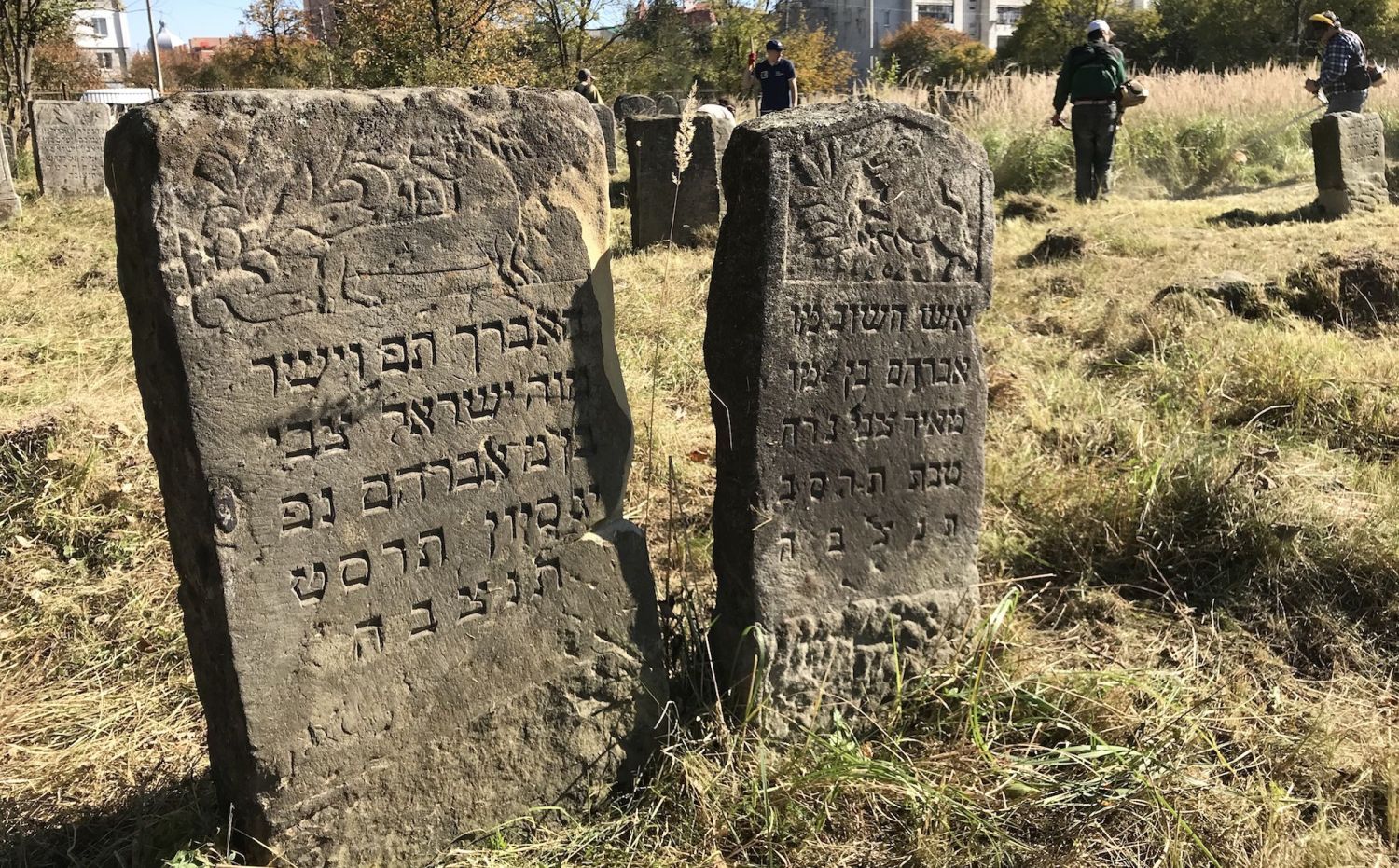
- The leading project: Restoration of the Warsaw Jewish Cemetery, established in 1806, with the support of the Polish Ministry of Culture, in collaboration with local rabbis and the Cultural Heritage Foundation.
- In the city of Sosnowiec, Poland, a non-Jewish resident named Sławek Pastuszka found the funds to mow the grass at the rundown Jewish cemetery. High school students from nearby Katowice, led by history teacher Sławomir Witkowski, promised to care for the cemetery in the future.
- Vladimir Spanik, a 73-year-old member of the village council of Vinodol, Slovakia, spearheaded the restoration of the village’s abandoned Jewish cemetery, in order to instill cross-racial solidarity in the young people of his community. He recruited for the project several boys from the Roma community, which had also suffered during the Holocaust.
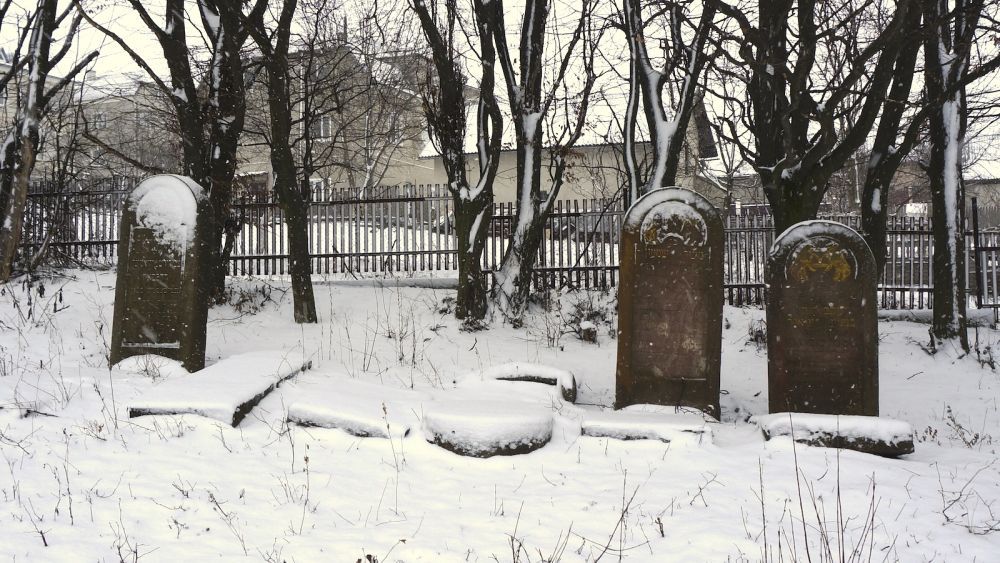
- In the small Polish city of Cieszyn, a museum employee, with the help of a teacher at the Evangelical Society School, recruited students for a Jewish cemetery restoration project, as a concrete way to engage with local history and develop intercultural understanding.
- In Kielce, a city in south-central Poland, high school students commemorated the 75th anniversary of a post-WWII anti-Jewish pogrom by cleaning the local Jewish cemetery.
- In the Ukrainian town of Rohatyn a special Jewish heritage project brings together non-Jewish residents and volunteers from across the globe to restore the local Jewish cemetery and research the history of Jews in the region
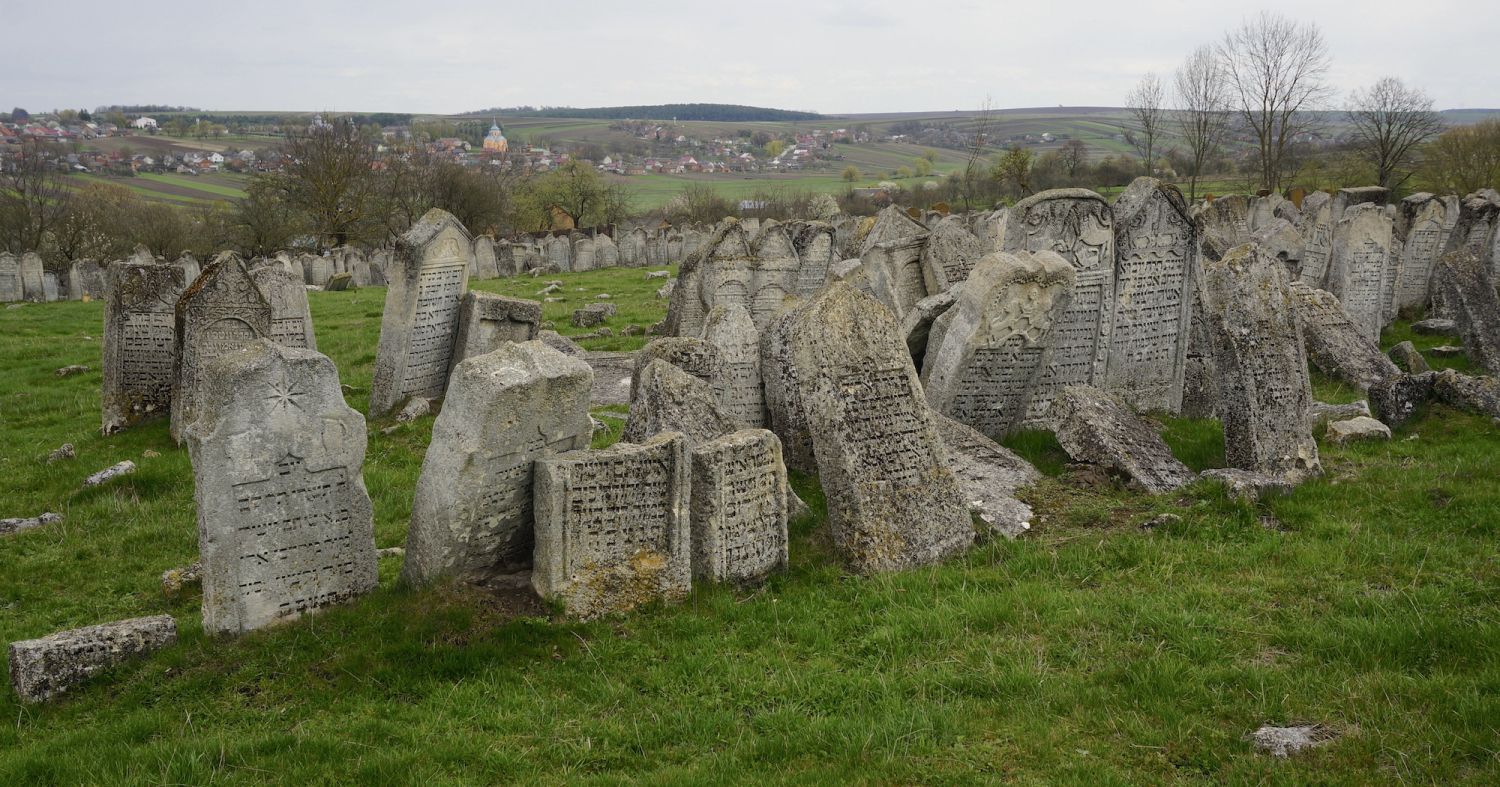
- In the village of Chesnyky in Ukraine the local non-Jewish Rosolovska family established a memorial for local Holocaust victims with the support of the United Jewish Community of Ukraine and the Jewish community of Ivano-Frankivsk.
- The Cultural Heritage Foundation in Poland created a website that provides guidelines for restoring Jewish cemeteries in accordance with the Jewish Halacha.
- Marla Osborn, a U.S. citizen whose grandmother was born in Ukraine, created an online guide for Jewish Cemetery Preservation in Western Ukraine.
Governments and legislation
- Since 2015, and especially over the last two years, more than 800 bodies worldwide have adopted the IHRA definition of antisemitism.
- Several European countries have appointed special Envoys – officials tasked with monitoring antisemitism, raising public awareness, and promoting legislation to tackle this abhorrent phenomenon.
- In October 2021, the Malmö International Forum on Holocaust Remembrance and Combating Antisemitism convened in Malmö, Sweden, attended by dozens of delegations and leaders from around the world, who answered the call of Swedish Prime Minister Stefan Loeven.
- At the Malmö Conference the EU launched its Strategy on Combating Antisemitism and Fostering Jewish Life. Considered the first-ever concrete action against antisemitism backed formally by an international organization, the program aims to prevent all forms of antisemitism, protect and foster Jewish life in Europe, and promote research and commemoration of the Holocaust.
- The Canadian government, responding to a sharp rise in antisemitic incidents, launched an action plan – allocating five million dollars to protect Jewish institutions, cemeteries, and monuments, fund education programs, advance legislation and enforcement measures, and promote the adoption of the IHRA definition of antisemitism, among other initiatives.
- Irwin Cotler, Canada’s former Minister of Justice who currently serves as the country’s special Envoy on Antisemitism, invited Jewish students who have experienced antisemitism on campus to tell their stories at an emergency conference.
- In 2020, Austria published a comprehensive action plan for combating antisemitism and appointed its Federal Minister for the EU and Constitution to oversee the fight against antisemitism.
- Pope Francis and Cardinal Kurt Koch, Head of the Vatican Committee for Relations with the Jewish people, issued various declarations strongly denouncing antisemitism and advocating close dialogue between Christians and Jews.
- On his visit to Budapest in September 2021, Pope Francis spoke firmly against antisemitism.
The Gulf
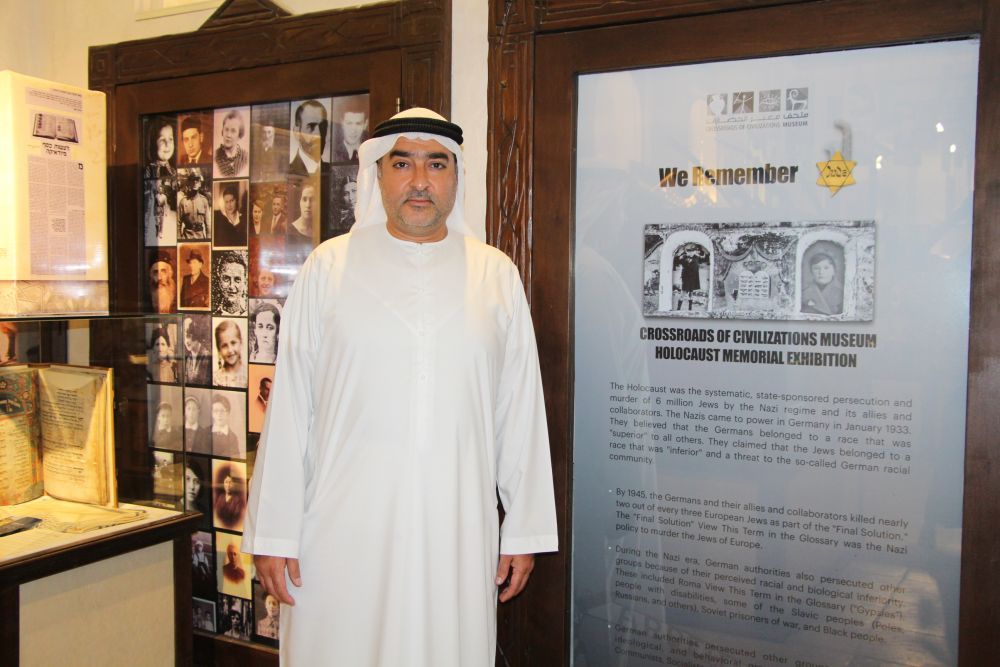
- The UAE’s Jewish community is growing rapidly, and already numbers more than 1,000 members.
- A Holocaust memorial exhibition entitled ‘We Remember’ – the first of its kind in the Arab world – was launched at the Crossroads of Civilizations Museum in Dubai in May 2021, in the presence of the Israeli and German ambassadors to the UAE. A synagogue has been operating openly in Dubai since late 2018, and a Jewish community center was also inaugurated.
- The first Jewish school will soon open in Dubai.
- Abu Dhabi is building the Abrahamic Family House – a joint religious complex including a mosque, a church, and a synagogue of similar height and façade, differing only in their internal design to fit the needs of the different religions. The complex, symbolizing harmony alongside diversity among the three monotheistic faiths, will be completed during 2022.

- Hotels in the UAE were instructed to provide kosher food to their Jewish and Israeli guests.
- Citizens of the UAE and Israel celebrate Muslim and Jewish holidays together, including a joint meal marking both Lag BaOmer and Iftar (which closes every day of fasting during the month of Ramadan).
- The House of Ten Commandments synagogue in Manama, the capital of Bahrain, was reopened in March 2021 following comprehensive restoration under the aegis of King ‘Isa bin Salman Al Khalifa.
- In August 2021, the first celebration of Shabbat services since the late 1940s was held in Bahrain, attended by local public figures.
- In September, the first Jewish wedding in half a century was celebrated in Bahrain
